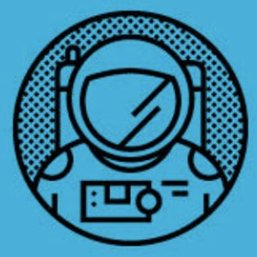United States (Palo Alto)
Caring for one another is, well, caring, but it can be hard and it can be lonely. You need to live it to know what’s involved. However, now there’s a map that can help paint a visual picture, thanks to an ex-Nasa innovator in Silicon Valley and his Atlas of Caregiving.
“Care is not an isolated thing. It’s in every one of our lives.” – Rajiv Mehta
“For the last 15 years I’ve been focused on this question of how people can take better care of ourselves, our families and communities – to make it more joyful,” explains Rajiv Mehta, the CEO of Atlas of Caregiving.
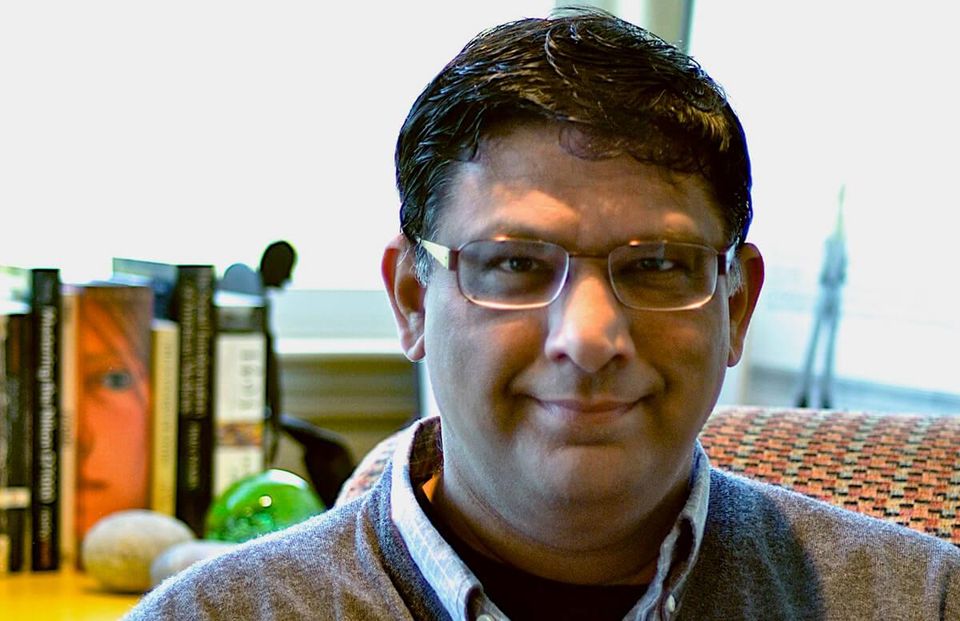
Now, we do love an Atlas – and an ‘Atlas of Caregiving’ is exactly what it sounds like. The tool identifies and maps connections to paint a picture of the day-to-day experience of caregiving – but it’s also designed to truly improve people’s lives, making carers realise that they’re not alone. This can include family members, friends, healthcare professionals and even pets. (OK, maybe the pets can’t decipher the map, but they can be included in it.)
Caring can mean a number of things, from medical tasks to replying to emails, checking medications and cooking. While each individual’s situation is unique, there are common tasks, challenges and emotions; regardless of demographics or medical conditions.
“Care is not an isolated thing. It’s in every one of our lives,” Rajiv tells us. “But our knowledge is bottled up inside ourselves because we don’t talk about it. When people in a community talk, there is so much emotional and practical value.”
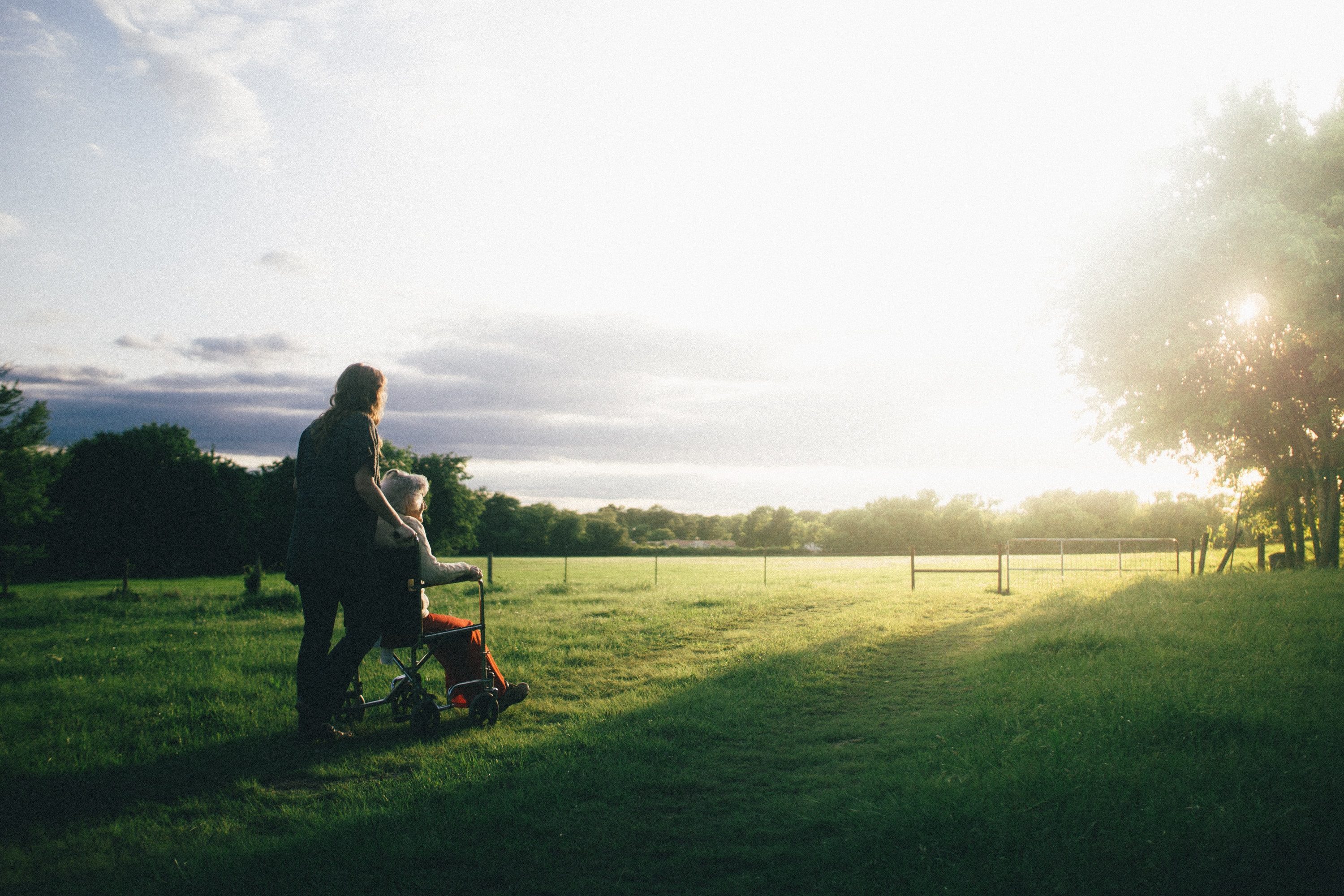
Rajiv believes that innovation starts with an anthropological appreciation: “It’s looking at the world deeply to observe needs that people may not be able to tell you about.” A lot of his work in the tech space was fundamentally about ethnography, empathy, design and looking at societies.
Rajiv built this CareMap app to help visualise relationships. Caregivers can create a map on their own, in a group with the help of a facilitator, and then use the app to update the map as circumstances change.

As Rajiv is a fan of old school pen and paper, it starts with sketching a rough diagram: stick figures represent supporting people, arrows show engagement and circles show proximity.
“It helps see what gets overlooked (people often forget to include their spouse, or their family doctor, or a particular family member). Family members may spot gaps and realise they need to step up, or how much they already do. There is value in pausing, so we teach people to slow down.”
The idea of paying attention is not new. What is new is providing great tools. “Whether you’re a gardener, a cook, or like knitting, a lot of your progress is made because you’re paying attention. Many philosophers talk about the value of self-observation and reflection. The audacious part of this is telling people that you have the capacity and absolute right to examine your own life.”
Developed by experts in tech, design, anthropology, family caregiving and healthcare – with support from the Santa Barbara Foundation and AARP – CareMaps is just one of the tools and programs Atlas of Caregiving is designing. As a nonprofit, the Atlas funds itself with foundation grants to help communities take advantage of the tools; giving away methods and information for free. To date, Rajiv has done workshops with over 1,000 people, who have taught (on average) a further 20 people each. “I’ve heard from organisations from Chile to Singapore who’ve adopted this and started using it!”
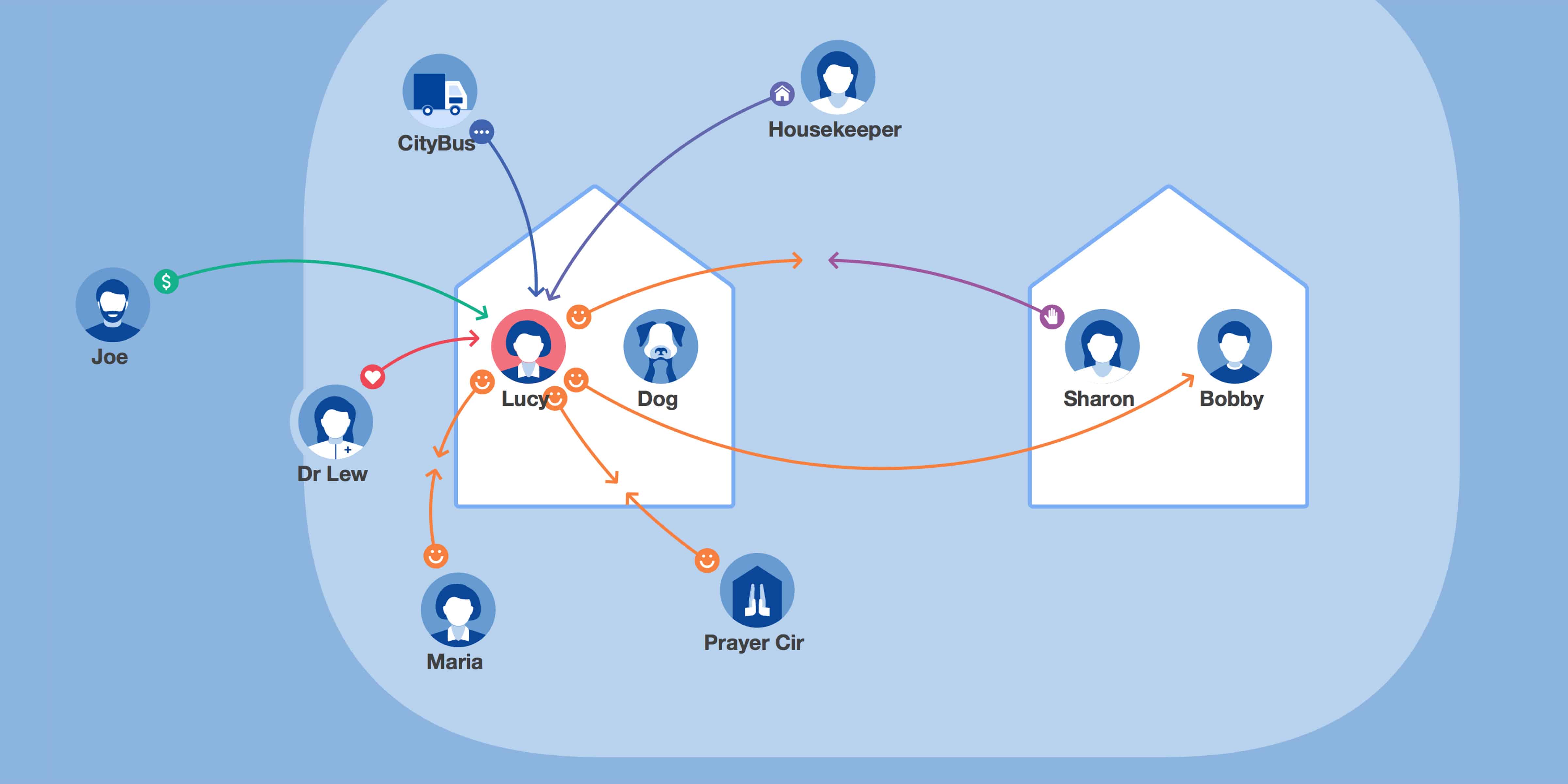
Rajiv has always been more passionate about unlocking stories, more than collecting people’s data. “So much work in this area is focused on quantitative data, but a lot of it is not meaningful and can lead to bad science. Whereas a few stories can be incredibly powerful.”
For this reason he has developed Mapping Ourselves with Giorgia Lupi and her team at Pentagram Design. Consisting of the Atlas CareMap and five other low-tech tools and workshops, it helps us visualise other aspects of our lives that might impact our sense of health and wellness.

Their We All Care initiative in Michigan involves a very diverse group of community organisations from youth groups and faith communities, to businesses and state agencies. “Businesses are talking to Jewish congregations who are talking to youth groups who are talking to senior services agencies! The richness of conversation we are driving has an impact and we’ll be observing that.”
Next, the plan is to learn from this grand experiment – so it can be adopted in other settings. “We’re looking at women’s empowerment too: how can we help women become more self-supportive through this process? Can these tools open up empathy and understanding and empowerment? Everything we are doing is about people – not just older people.”
Rajiv’s wants to get a broader selection of people to take part. “At a recent session, a woman who suffers from depression, told us: ‘At first I thought the CareMap was a strange concept, but eventually it made sense when I realised that care is not a solitary activity: we care for each other together.’ People seeing that is what makes an impact.”
AtlasAction: Draw/create your own care map.
Project leader
Rajiv Mehta, CEO, Atlas of Caregiving
Partners
This project has been selected as part of AgeFutures, a new storytelling project that maps the innovations transforming the lives of older people, and the designers, entrepreneurs and community leaders – across all generations – behind them. Atlas of the Future is excited to partner with Independent Age.
Support the Atlas
We want the Atlas of the Future media platform and our event to be available to everybody, everywhere for free – always. Fancy helping us spread stories of hope and optimism to create a better tomorrow? For those able, we'd be grateful for any donation.
- Please support the Atlas here
- Thank you!
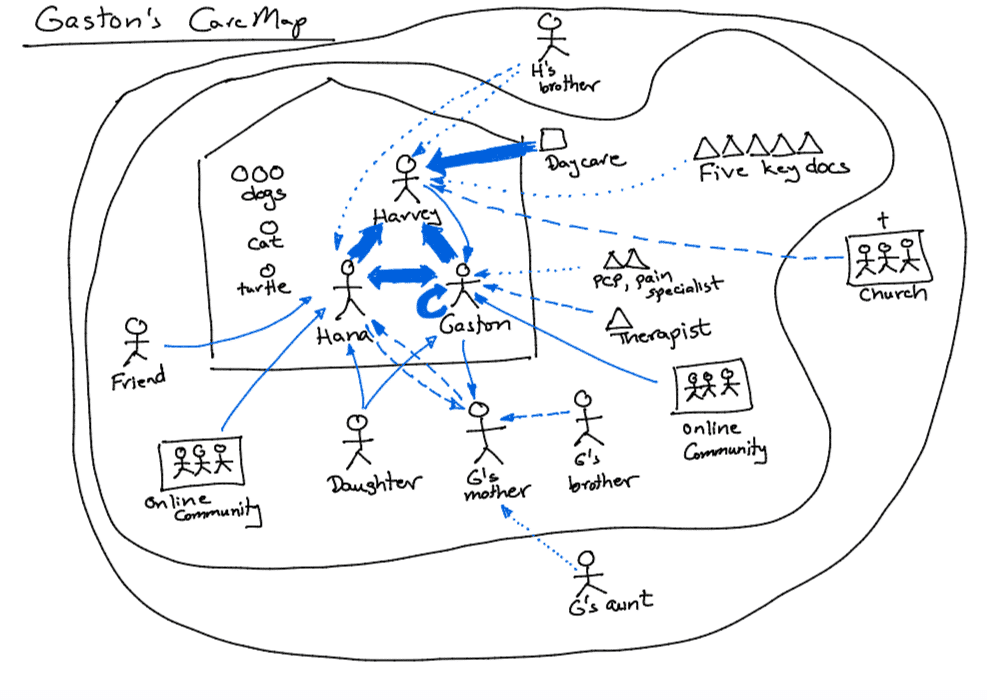
This is Gaston’s CareMap: Hana and Gaston have been married for about 20 years. Before marrying, Gaston was in a serious accident that left him with a major back injury that has caused him significant pain and discomfort since. They have three grown children; one daughter lives nearby. Hanna’s brother Harvey lives with Hana and Gaston. He has intractable epilepsy, Parkinsonism, and other serious health conditions. His church had been a vital part of his life but he can no longer go there; however they continue to support him by sending him a DVD of services each week. Gaston’s mother lives nearby. Although she has very serious health issues, she insists on staying in her own home, and so Gaston often goes over to help.
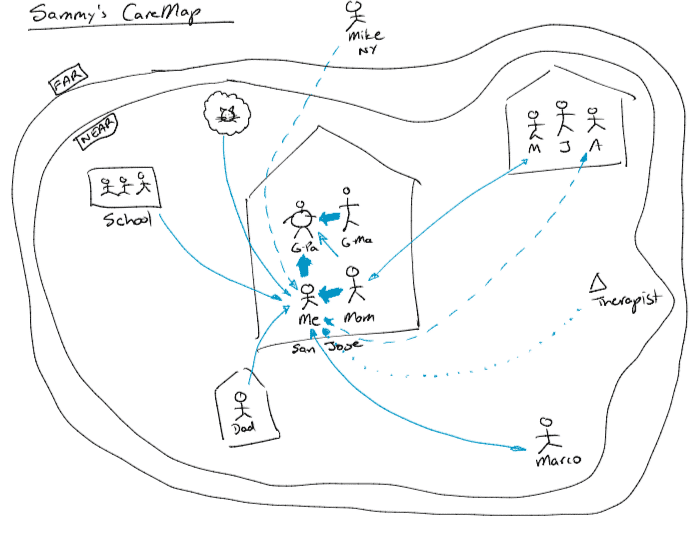
This is Sammy’s CareMap: Sammy is 8 years old. He drew his CareMap by himself, telling his mother “I know what I’m doing!” This was the second time he had drawn a CareMap; the mother had first taught him to draw one roughly six months earlier. (I redrew it to anonymize some information and for clarity). He lives with his grandparents and his mother. His grandfather is very ill, and Sammy spends a lot of time with him. Sammy’s included his deceased pet cat, as he feels that his cat is still very much watching over him and caring for him. I like this CareMap especially because of who drew it — an 8-year-old — and how it shows that even young people are both caregivers and care receivers, and can have complex views about care (that his cat is watching over him, that he cares for his grandfather).

